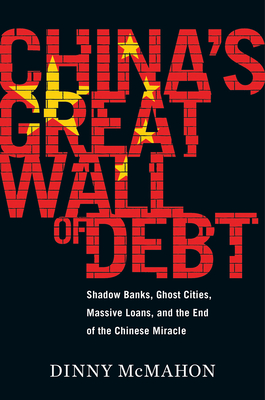
China's Great Wall of Debt:Shadow Banks, Ghost Cities, Massive Loans, and the End of the Chinese Miracle
Book Summary
The four-decade long and rapid rise of China has been nothing but a miracle, increasingly viewed as an alternative model of economic growth and development.
Once the communist nation was struggling to feed its population, lacked basic manufacturing capabilities and was hardly seen as a rival for the superpower status. However, only in the course of a few decades China has not only moved millions of people from farms to factories and come to dominate several industries on a global scale, but has also emerged as a leading foreign investment source.
Although analysts, commentators and politicians have been forecasting the China crisis for more than 20 years, none of these prognoses have been realized.
To the outside world, China has come to be seen as financially sound, technologically advanced, and led by competent and determined leaders. It is this myth that the Chinese leaders want to perpetrate and use it to project its power around the world. Leaders of nations and corporations around the world are driven by the fear of missing out and worries of the political price to pay in future based on a simple premise that China’s rise as a global power is inevitable.
That belief is built on a great track record of economic growth and development.
Experience shows that when a country accumulates too much debt relative to the size of its economy too quickly, a crisis typically follows. In fact, China’s debt accumulation could be among the fastest in modern history. According to the People’s Bank of China, since 2008, the Chinese economy has added about $12 trillion worth of debt, roughly the size of the entire U.S. banking system in that year.
In his book China's Great Wall of Debt, journalist and author Dinny McMahon offers a detailed view of how China's economy works and how people and businesses are forced to work with the restless hand of the regulators and political leaders.
In an easy-to-read, understandable manner, McMahon provides insights into how banks are required to support the local or state government mandates and targets, often using unilateral land transfers for infrastructure projects that have in turn displaced millions of farmers.
How Chinese leaders navigate the economic slowdown, slower job creation, rising property defaults, and growing farmer protests will determine the survival of the government and the fate of the communist party.
While China's rise has altered global economic flows of capital and goods, the country's fall has the potential to rearrange the global economic order once again.
